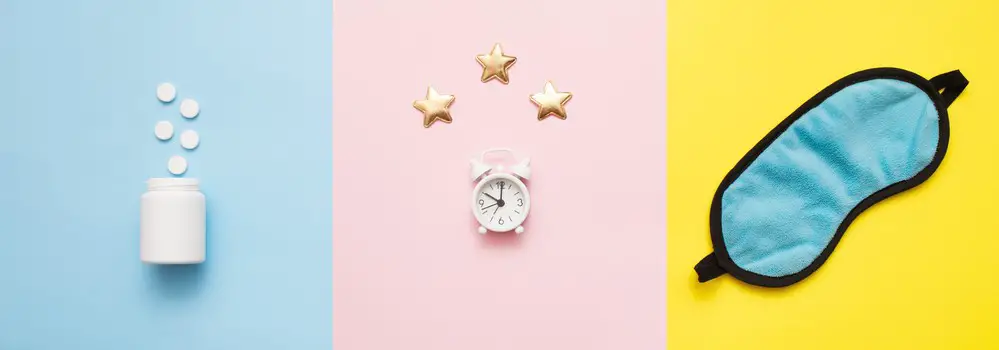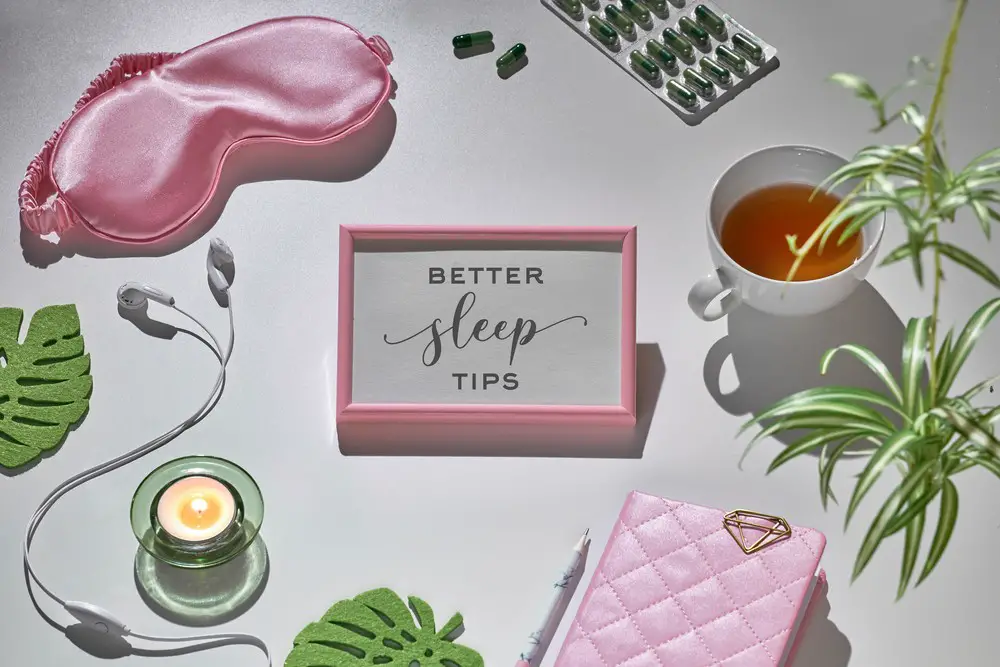As a BetterHelp affiliate, we receive compensation from BetterHelp if you purchase products or services through the links provided
Nothing is worse than struggling to fall asleep, especially when you know you have a busy day on the morrow. Some things to keep in mind about sleep include maintaining a regular sleep schedule, creating a bedtime routine, and going to bed when tired.
Falling asleep should not require much work, but if it has become difficult, nine solutions claim they can get you to sleep in less than five minutes.
1. Create a Sleep-Ready Body
You have to get your body sleep ready if you want to fall asleep quickly. Therefore, it is essential to unwind after a busy day to help relax the mind and body.
Most ways of preparing the body for sleep require some prior planning. For example, avoid caffeine in the evening because of its stimulating effect. Furthermore, alcohol in the evenings can hurt your sleep quality.
Your stomach must digest food before you sleep, so eat dinner early and consume fewer calories at night. One study suggests that including simple carbs (white rice, bread, or potatoes) in your evening meal can help you sleep faster.
Regular exercise helps make it easier to sleep, but don’t exercise before bedtime unless you prefer yoga or other relaxing and low-impact activities.
One solution for preparing your body to fall asleep quickly is to take a warm bath or shower before bed. The thinking behind this is that the drop in body temperature lets your body know it is time to sleep.
2. Create a Sleep Ready Room
A proper sleep environment can undoubtedly impact how fast you fall asleep. So make sure that your body associates your bedroom with rest. You don’t need to make significant changes, but make sure that your space is decluttered and has a comfortable bed, bedding, and pillows.
Switch off entirely by removing electronic devices and clocks, and keep your room temperature at between 65 to 70 degrees Fahrenheit.
Therefore, if you want to fall asleep faster, ensure that your space is dark and quiet. Use dark curtains, a sleep mask, and earplugs for a sleep-inducing and peaceful environment.
3. Create A Sleep Ready Mind
Life’s stresses can severely affect how quickly you fall asleep. So get into sleep mode by leaving behind work and other worries by turning off your laptop and phone.
The third solution for helping you get to sleep in just a few minutes is practicing exercises like controlled breathing or using a sleep-inducing device, mind reframing, and military relaxation.
Controlled Breathing
4-7-8 is a method of controlled breathing that can help you fall asleep in just a minute. You breathe in for 4 seconds, hold your breath for 7 seconds, and then breathe out over 8 seconds.
Mind Reframing
Worrying thoughts are notorious for creating a recurring cycle that prevents sleep. However, you can try this exercise to help reframe the mind. Start by recognizing the thought, challenging it, and replacing it with a positive one.
Military Method
You may need to practice this for a few weeks before you perfect it, but once you have mastered the military method, people say it can help you fall asleep in only two minutes.
4. Create A Sleep Ready Thought Process
Sometimes, the intention to fall asleep creates the opposite effect, causing anxiety and difficulty in sleeping or maintaining good sleep quality. Therefore, try and reverse the thought process, almost like with reverse psychology, and try and try to tell yourself you want to stay awake.
You can also try and take the focus off sleep by reading a book, visualizing activities, or listening to a podcast. Furthermore, don’t let yourself ruminate on unpleasant thoughts like your to-do list, embarrassing moments, or the stressful day you had. Instead, let your mind reach a mode similar to daydreaming, where you visualize calming scenarios of somewhere serene or repetitive.
5. Take a Melatonin Supplement

Melatonin is the hormone produced naturally by your body and tells your brain when it’s time to sleep. Melatonin levels follow a cycle based on the time of day, rising in the evening and dropping in the morning.
For this reason, melatonin supplements have several uses, particularly for people suffering from jet lag or needing to shift their sleep times due to night shifts.
Interestingly, taking melatonin at bedtime also decreases sleep latency (the time required to fall asleep). Research on how long it is to take melatonin supplements is ongoing, and pregnant or nursing patients should avoid it.
6. Lavender Aromatherapy
The purple flower from the lavender plant has a calming fragrance. Several studies suggest that lavender helps with insomnia and enhances sleep quality. The most common way to benefit from lavender is by smelling it before bedtime. People claim that spraying some aromatherapy oil on the skin or misting your linen will help you fall asleep within minutes of laying your head on your pillow.
7. Use a Sleep Device
Two devices can help you tackle insomnia quickly when you are having trouble sleeping: a hand-held sleep aid or a head massager.
Several companies manufacture hand-help sleep aids which emit low-frequency decompression or a higher frequency sleep encouragement mode.
Then again, head massagers are sleep-inducing instruments that work with microcurrents and electrical stimulation to help you get to sleep quickly. The time required to get you to sleep on the make and frequency chosen.
8. Soothe Your Mind With a Sleep Machine
Some sounds are soothing and can help you sleep, so if you prefer, play some gentle music or listen to a device that creates white noise. White noise can mask all other annoying sounds that prevent you from falling asleep quickly. These devices let you pick from several preferred whirring or static sounds, depending on your preferences. Some devices also include nature or ambient sounds.
9. Valerian Root – a Non-prescription Sleep Aid
If you have tried all these ways but still struggle to fall asleep, many proponents of valerian supplements believe they can help you fall asleep within minutes. Despite conflicting studies, with some finding therapeutic benefits and others not, up to 600mg daily seems to affect sleep latency positively. However, the effects of long-term use require further research.
- How Having Cybersecurity Protection Helps You Relax - April 25, 2025
- 8 Reasons Why Spending Time Outside Calms You Down - April 25, 2025
- 5 Helpful Ideas for Managing Stress During a Plumbing Emergency - April 24, 2025
This site contains affiliate links to products. We will receive a commission for purchases made through these links.



